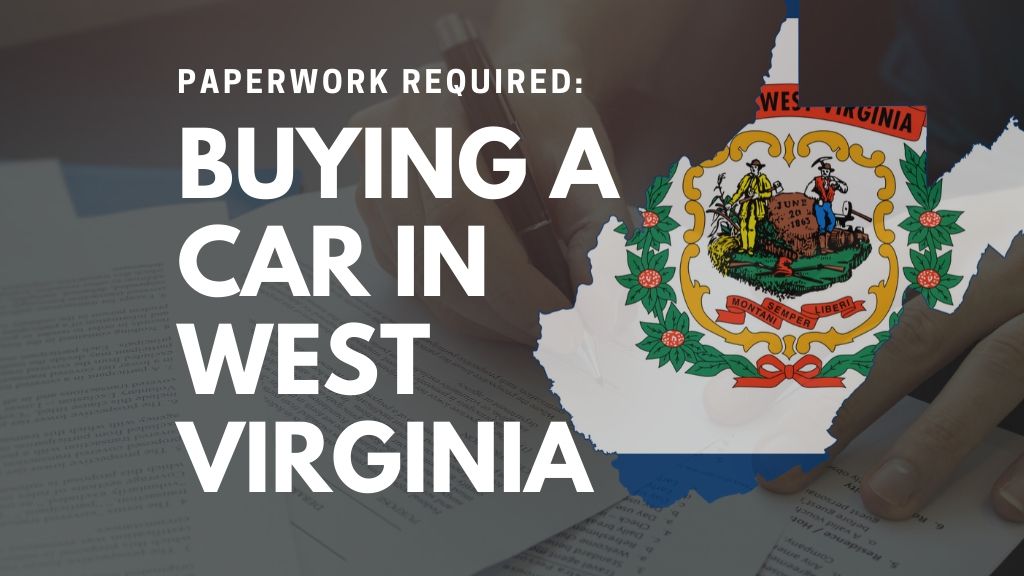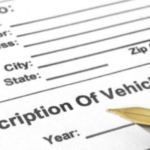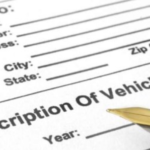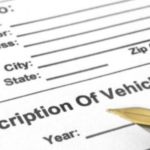Last Updated on June 14, 2020 by Jason Mason
When purchasing a car in West Virginia, you must obtain paperwork from the seller to register and title the car in your name. If you buy the car from a vehicle dealer, they will handle the paperwork on your behalf. If you buy it from a private seller, you will be responsible for handling all the required paperwork. Be sure to obtain a notarized bill of sale from the seller. You will also need to take the vehicle for inspection and obtain car insurance. Once you get all these documents, you will now proceed to registering and titling the car in your name with the West Virginia Department of Transportation (WVDOT).
Paperwork for West Virginia Car Buyers
As a buyer, you need to obtain certain documents from the seller at the time of vehicle purchase. Make sure you obtain the following from the seller:
- The vehicle title, which must include your signature, seller’s signature and odometer reading if the vehicle is less than 10 years old.
- A notarized Bill of Sale (Form DMV-7-TR).
- A valid vehicle inspection sticker. If the car you have purchased does not have a valid sticker, you have 10 days from the date of purchase to have it inspected.
- Car insurance. You must show proof of car insurance at the time of registration.
Buying from a Car Dealer
If you are buying a car from a dealer, they will handle all the required paperwork with the West Virginia Department of Transportation (WVDOT). They will also collect all applicable titling and registration fees and taxes for you. To apply for a title for a leased vehicle or transfer a title of a leased vehicle to your name, you will be required to complete and submit Form DMV-1L (Application for Certificate of Title for Leased Motor Vehicle).
Buying Without a Vehicle Title
The West Virginia Department of Transportation warns vehicle buyers from buying vehicles without a title. You must obtain the previous title of the vehicle you are purchasing; without which you will not be able to register or title the car in your name. If the title is missing, ask the seller to apply for a duplicate copy for you.
Title and Register a Car in West Virginia
To register and title the car in your name at your local West Virginia Department of Transportation, you will need:
- The vehicle title, which must include your signature, seller’s signature and odometer reading if the vehicle is less than 10 years old.
- A notarized Bill of Sale.
- A completed Form DMV-1-TR (Application for Certificate of Title for a Motor Vehicle).
- Completed Form WV-4A (Owner’s Statement of Insurance).
- Proof of passing vehicle inspection.
- Your West Virginia driver’s license.
- Payment of applicable fees and taxes.
Required fees and taxes
- $10 title fee.
- $30 registration fee.
- Sales tax which is usually 5% of the purchase price or $25 if the vehicle’s purchase price was $500 or less.
Once you submit all the required paperwork and pay the applicable fees and taxes, you will be issued with a new license plate. In West Virginia, you cannot transfer old license plates to the new car.
Car Insurance Requirements
You’re required to have liability and uninsured motorist coverage. to fulfill mandatory West Virginia auto insurance requirement.
Liability coverage covers the cost of property damage and injuries you may cause to someone else following a car accident. The following minimums must be contained in your liability car insurance:
- $25,000 for death or injuries per person
- $10,000 for property damage
- $50,000 total for death or injuries per accident.
Uninsured motorist coverage pays for property damage and injuries you suffer in a car accident involving a driver without car insurance. Though you’re required to have at least the minimum requirement for uninsured motorist coverage, most car insurance providers are expected to offer the maximum limits of uninsured motorist coverage of:
- $50,000 for total injuries per accident
- $25,000 for injuries, per person per accident
- $20,000 for property damage per accident.
NOTE: Higher limits will mean increased premiums.
Know your rights: West Virginia Lemon Law
West Virginia Lemon Law offers protection against the purchased vehicles with defects legally described as “lemons.” If you purchase a lemon vehicle within the state of West Virginia, you can use this law to get your refund or get it repaired. Basically, this law allows manufacturers to make a reasonable number of attempts to fix the faults before demanding your refund or a vehicle replacement. In this article, you will find an overview of this lemon law and steps to take if you purchase a lemon.
A lemon is any new passenger vehicle that buyers purchase only to find it full of serious defects that keep on recurring even after a reasonable number of repair attempts by the manufacturer. If your vehicle can’t be repaired after a reasonable number of repair attempts under the terms of vehicle warranty, the vehicle may qualify as a lemon under West Virginia Lemon Law. Additionally, the defect in your vehicle must impair the vehicle’s market value, make its operation difficult and compromise its safety. So, the law defines “Reasonable number of repair attempts” as:
- Up to three attempts for all faults
- One attempt for any fault that may result in serious injury or death.
It is the duty of an authorized dealer or manufacturer from whom the vehicle was purchased, to fix the problem. If the problem is not fixed you have a right to demand for your refund or vehicle replacement. Solve the issue with your car dealer or manufacturer, before taking a legal action. Reputable manufacturers always want to preserve their good reputation. They will therefore refund your money or give you a vehicle replacement.
Even if your vehicle is not a lemon, West Virginia Lemon Law puts forward the following Dealer/manufacturer’s Regulations which might be useful for you.
- All manufacturers must inform (in written) buyers the rights as stipulated under West Virginia lemon law brochure.
- All dealers/manufacturers must inform buyers (in written) on repairs done on the vehicle before shipment.
- Vehicles repurchased under this law may not be resold in this state unless all the required repairs have been done. Prospective consumers must also be informed that this vehicle is a lemon.




